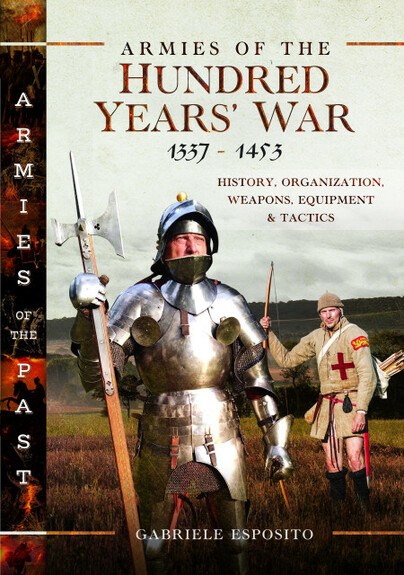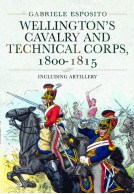Armies of Ancient Greece Circa 500 to 338 BC (Hardback)
History, Organization & Equipment
Imprint: Pen & Sword Military
Pages: 224
Illustrations: 150 colour images
ISBN: 9781526751898
Published: 30th July 2020
(click here for international delivery rates)
Order within the next 1 hour, 3 minutes to get your order processed the next working day!
Need a currency converter? Check XE.com for live rates
| Other formats available - Buy the Hardback and get the eBook for free! | Price |
|---|---|
| Armies of Ancient Greece Circa… eBook (75.2 MB) Add to Basket | £6.99 |
Conflict was rife among the Greeks of the Classical period, including some of the most famous wars and battles of the whole ancient period, such as the defeat of the Persians at Marathon, the Spartans’ heroic last stand at Thermopylae, the gruelling Pelopponesian War and the epic March of the Ten Thousand. The Greek heavy infantry spearmen, or hoplites, are one of the most recognizable types of ancient warrior and their tighly-packed phalanx formation dominated the battlefield. Covering the period from the Persian Wars to the Macedonian victory at the Battle of Chaeronea, Gabriele Esposito examines not only the hoplites but also the other troops that featured in Greek armies with growing importance as time went on, such as light infantry skirmishers and cavalry. He details their arms, armour and equipment, organization and tactics. His clear, informative text is beautifully illustrated with dozens of colour photographs showing how the equipment was worn and used.
There have been a lot of books written about ancient Greek warfare. Stirring sagas of outnumbered defenders, Spartan legends etc, make for an enjoyable visit to the past. And while most books are quite complete, informative and interesting there is very little to differentiate them from each other, especially since most depend on the same sources.
John D. Burtt
Enter Gabrielle Esposito’s new book, Armies of Ancient Greece Circa 500-338 BC (Pen & Sword, 2020.) This is his fourth book in a Pen & Swords series called Armies of the Past, having already looked at the later Hellenistic period, Late Rome, and Celtic Europe. This book on the Greeks is a true departure from any of the others I’ve seen.
Esposito breaks down the 150-year period by conflict, with chapters on the various wars the Greek city states fought – usually against each other. For example, during the 380 BC conflict between Thebes and Sparta, Athens supported Thebes – until Thebe created the Boeotian League and became as powerful as Sparta had been, then the Athenians changed sides covertly. Politics was even fun back then! He ends the book with chapters on the troop types, organization and tactics of the armies of the period.
The author doesn’t just discuss wars and the military aspects of the period; he spends time on the social public life as well. You learn about the well-known system of military training Spartan youth went through before “graduating” to an assembly (aka mess) of their choosing, but you also learn about Sparta’s extremely bad treatment of the people they conquered and treated as virtual slaves. Example: the killing a Helot by a Spartan, for no reason at all, was permitted and the Spartans generally expected them to be on the verge of rebellion all the time. (I wonder why.)
Ordinarily at this point I would whine about the fact that the author includes NO maps in the book to follow the city-state shenanigans (consider it mentioned), but the Wow of this book is the myriad color photographs of reinactors in full Greek armament. Using members of the Spanish cultural association Athenea Prómakhos (aka Warrior Goddess Athena) shields, armor, helmets and weapons are on full display, from the hoplites of the main lines to the lightly armored peltasts and Ekdromoi. Along with reinactor pictures, Esposito also includes pictures of some of the details you generally don’t see: such as the back side of the Greek round shield, showing how the shield would be carried on the arm. I found the color photos gave a far more inclusive idea of arms and armor than drawing/paintings could.
Overall, despite the lack of maps, this is an excellent history and the superb color photos are a real draw for this book.
A magnificent vision that is closest to reality thanks to the contributions of associations interested in historical recreations.
Miniaturas JM
Read the full Spanish review here
Review by Jason Hubbard
Irregular magazine, issue 14 Volume 2/Winter 2020
It’s very well laid out and easy to read, the photographs used to illustrate throughout are an added bonus, and one which provided great reference material for the Greek army I’ve started painting for Mortal Gods and SPQR games.
This is a definite must have for any gamer who is building or considering building an Ancient Greek army. I found it a very valuable read, and the photographs were also very useful, so I highly recommend putting this on your Christmas list.
You won’t go far wrong by having this on your bookshelf, especially any war-gamers interested in this period of history.
This book really stands out for the number of full colour photographs of re-enactors in Greek military equipment. These are plentiful (about one per page!), the equipment looks authentic and they are well captioned.
History of War
Read the full review here
A fascinating series is now joined by a delightful addition, covering the Ancient Greek military. The author provides an impressively researched account with outstanding full colour images in support. – Very Highly Recommended
Firetrench
Read the full review here
The book is very easy to read, informative without being too dry and the photographs as mentioned really bring it to life...
Army Rumour Service (ARRSE)
Again to sum up like the other book there is a wealth of coverage for the historian, modeller, or general enthusiast.
Read the full review here
Rating: 5 out of 5 stars
NetGalley, Rebecca Hill
Alright, where are my lovers of military history? If this is you, then THIS BOOK IS FOR YOU! Get ready to dive into the awesome world of the ancient Greek army, and learn so much more than you ever thought possible!
Now, you could be perfectly happy with battles, descriptions, and battle tactics - but honestly, why stop there!? This book doesn't! We are going to dive in a bit further, gain a deeper insight, and then thank heavens that we were not soldiers in ancient Greece (okay, just kidding, but still ...).
Take my word for it - get this book. You are going to want to continue reading when you start - so carve out some time. The author does an amazing job with the full layout, history, facts, and guess what? You are not going to get lost through this book! I loved the history, tactics, and getting to dive a bit deeper into some of the ancient world's fiercest soldiers.
Now, what are you waiting for? Get reading!
A very important part of the book is given by the photos that all portray an association (based in Spain) which has made the recreation of the hoplite period its raison d'etre. I have no doubt that the effort and attention to detail on the part of these reenactors is maximum, and that in principle, this type of activity can lead to new discoveries and improve our knowledge of weapons.
On The Old Barbed Wire
Read the full Italian review here
This is one of the book of the Armies of the Past series. I have been asked to a review a few of these and I find them amazing. As a Living history enthusiast I find Gabriele’s books to be great. The photography and reproduction of the dress, equipment and weaponry is very well done and helps the reader to see the work and craftsmanship that goes into this period of history.
Medieval Sword School
The book covers the early part of Greek history and includes the birth of the Polis and the hoplite, as well as other troops of the period. It covers the Persian wars up to the rise of the Macedonian empire. All the major wars of the period are covered in this book.
The photos are not simply added a section in the middle of the book, but are used very liberally throughout the book. This really adds something to this range of book.
I can highly recommend this book to anyone interested in this period of history. You can read about the reenactment group that are the basis of the photography in the book.
Read the full review here
Esposito offers up a thorough, highly focused, informative, and detailed look at the various types of soldiers, weaponry, and tactics of ancient Greece, dividing them up into various regions and noting the differences and similarities amongst them.
NetGalley, Bill Capossere
This book would be a great starting point for those wanting to learn about ancient Greece (never mind the "armies" part!) or for those wanting to have a clearer picture in their mind while reading fiction based in this time and place(s). There are no long timelines or lists of historical characters that the author expects you to remember from one page to the next - it's all laid out very simply and easily. The photos were an added bonus that really helped bring the book to life.
NetGalley, Dawn Lewis
About Gabriele Esposito
Gabriele Esposito is an Italian researcher and a long-time student of military history, whose interests and expertise range widely over various periods. Most of his recent studies have been dedicated to the reconstruction of the organization, functioning and tactics of the armies across history; in each of his publications there is always some relevant space dedicated to the 'material culture'of the various armies taken into account and - more in particular - to the empirical science known as 'uniformology'. Gabriele is the author of numerous books on armies and uniforms and is a regular contributor to many specialized magazines in Italy, France, Netherlands and UK. His many previous works include Armies of Early Colonial North America 1607-1713; Armies of the Late Roman Empire 284-476; Armies of the Hellenistic States 323 BC to AD30; Armies of Celtic Europe 700 BC-AD 106; Armies of Ancient Greece, circa 500 BC to 338 BC; and The Macedonian Army of Philip II and Alexander the Great 359-323 BC, all published by Pen & Sword since 2018. He lives in southern Italy, near the ancient battlefield of Beneventum.
Armies of the Hundred Years' War 1337–1453 History, Organization, Weapons, Equipment and Tactics (Hardback)
The Hundred Years' War is one of the most famous conflicts in British history, featuring such renowned battles as Crecy, Poitiers and Agincourt. It is a period littered with such legendary names as the Black Prince, Henry V and Joan of Arc, and a fascinating one for the development of warfare, weapons and armour. Gabriele Esposito puts the conflict in context with an overview of earlier Anglo-French conflicts and the roots of the dispute between the Plantagenet and Valois dynasties. He then devotes several chapters to giving a concise overview of the dramatic events of the war, before moving on…
By Gabriele EspositoClick here to buy both titles for £50.00





















